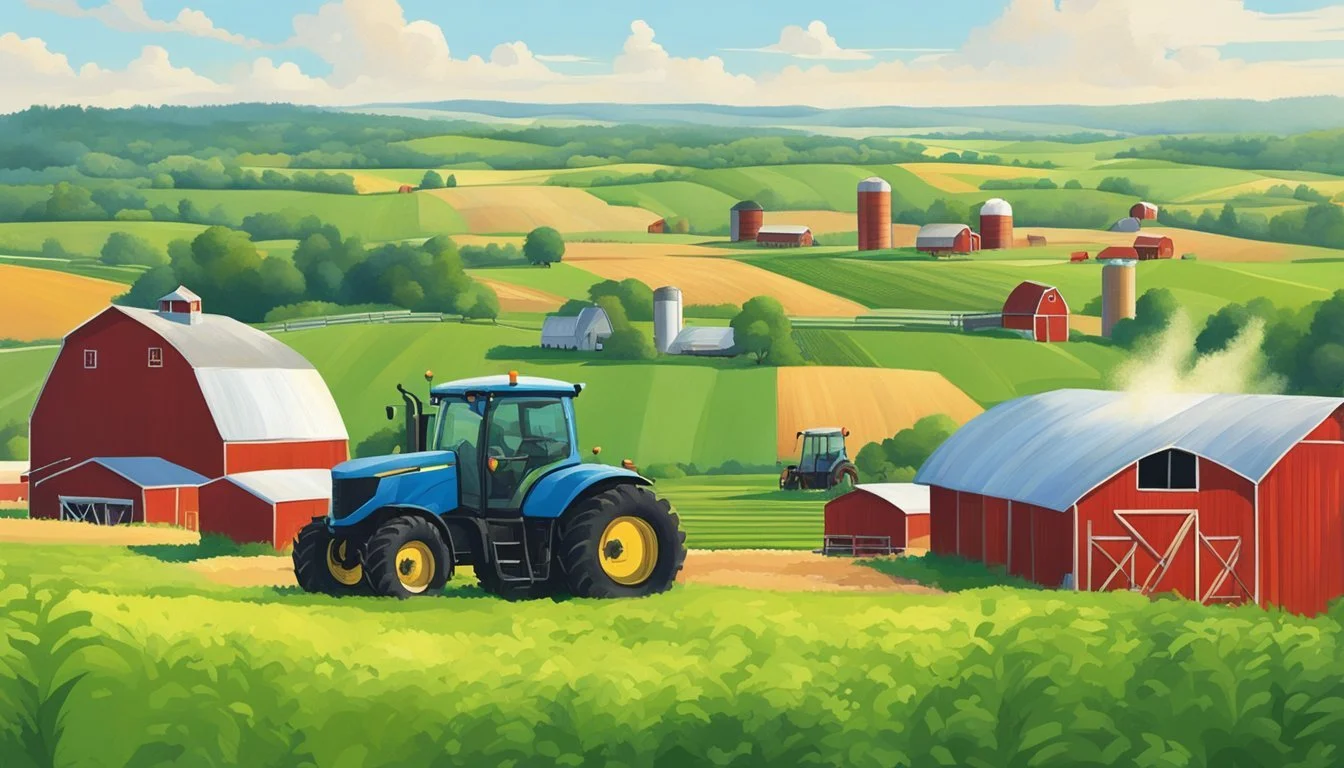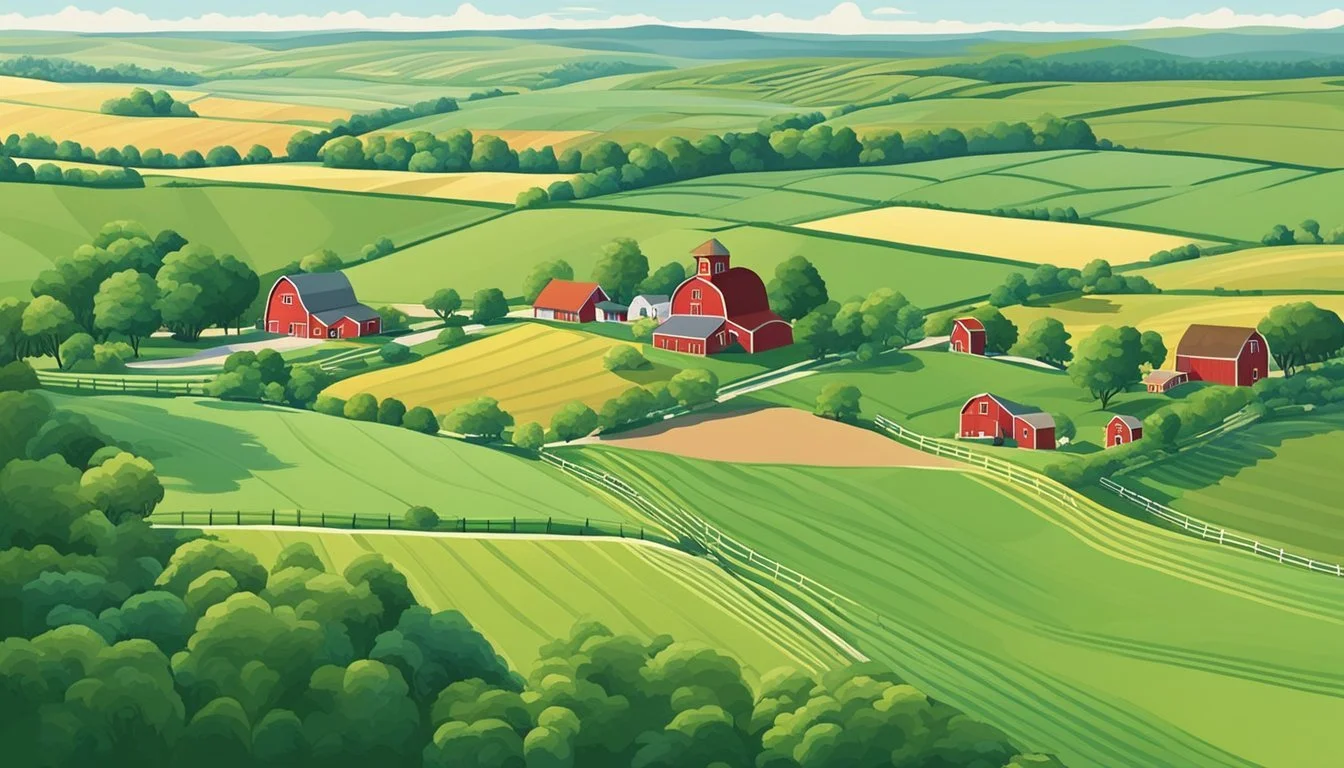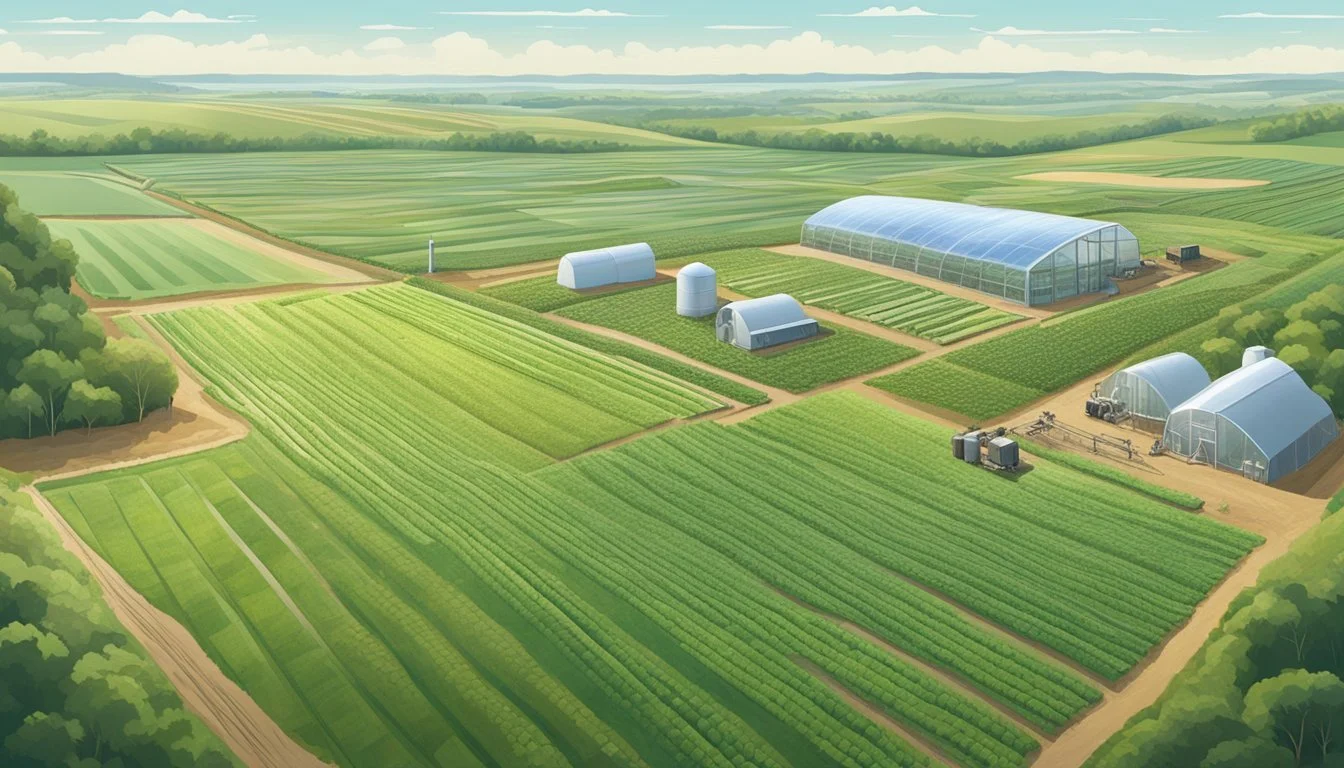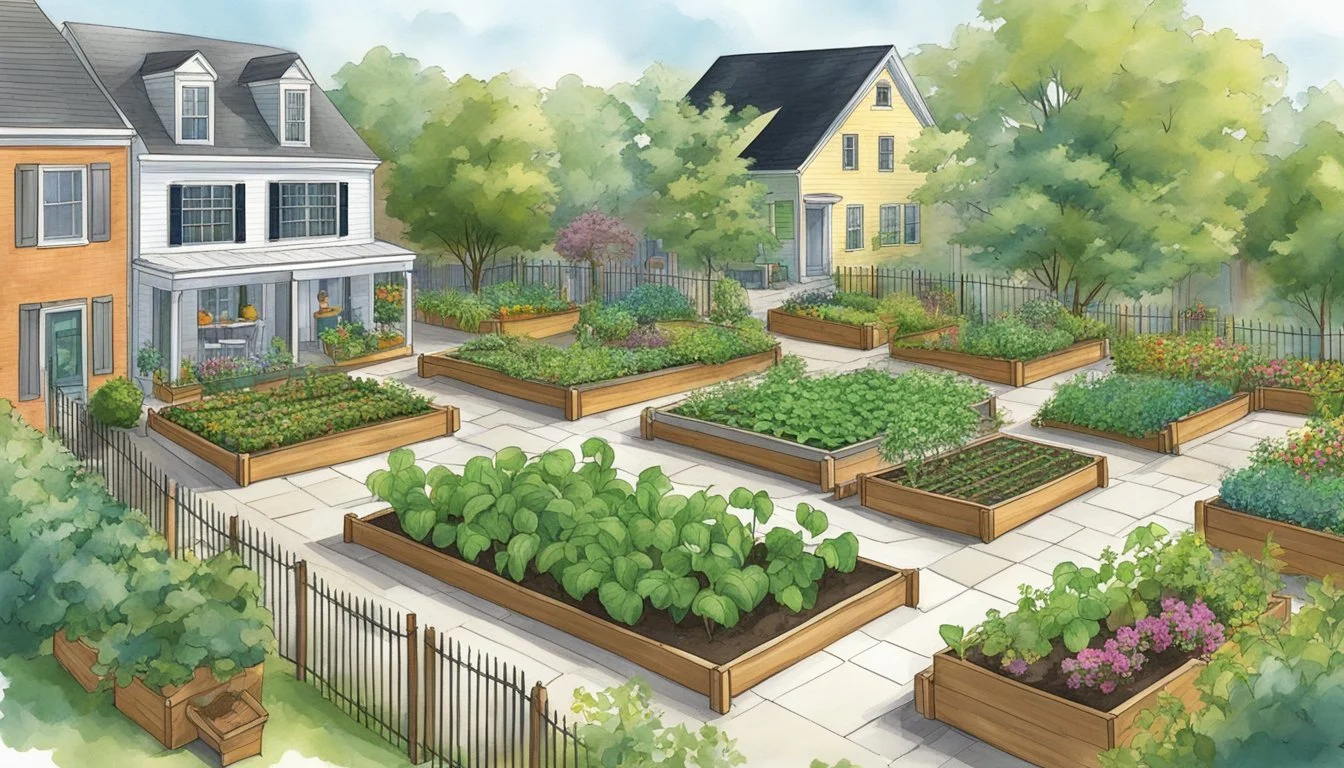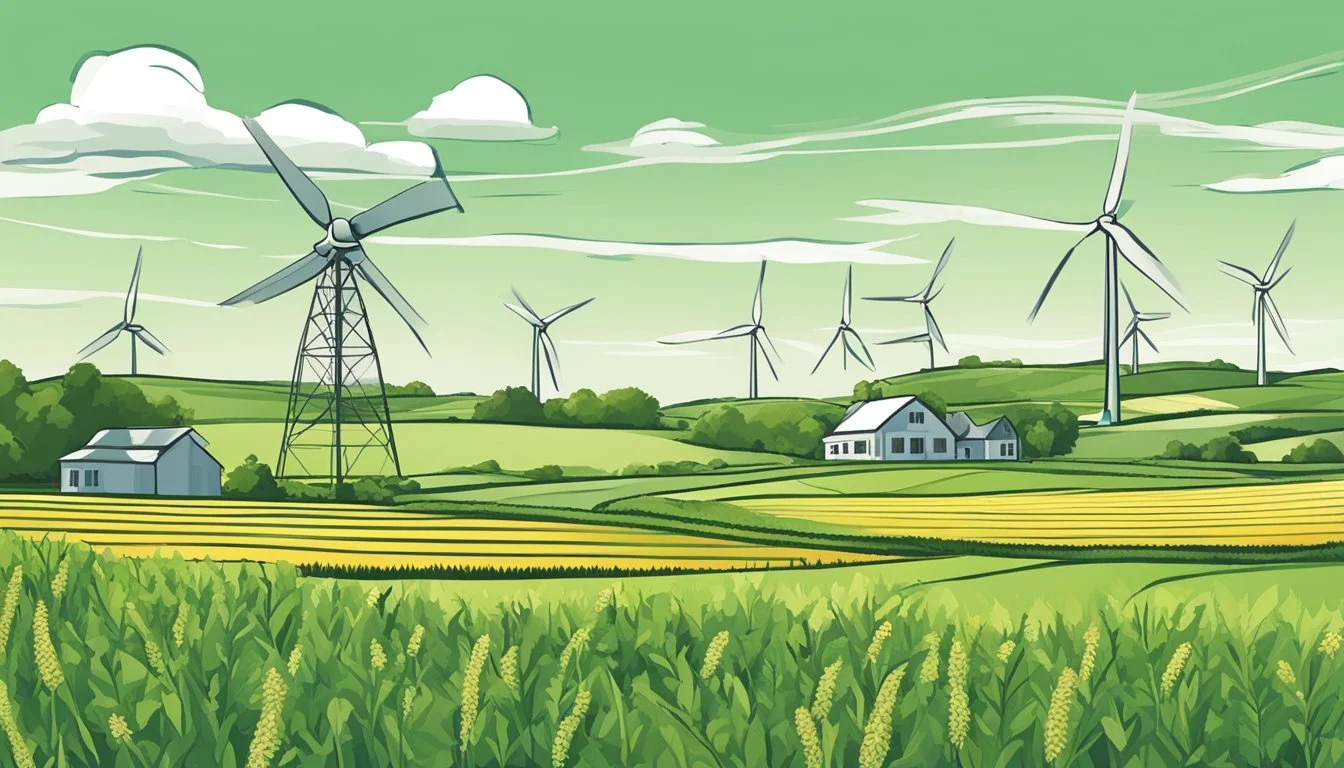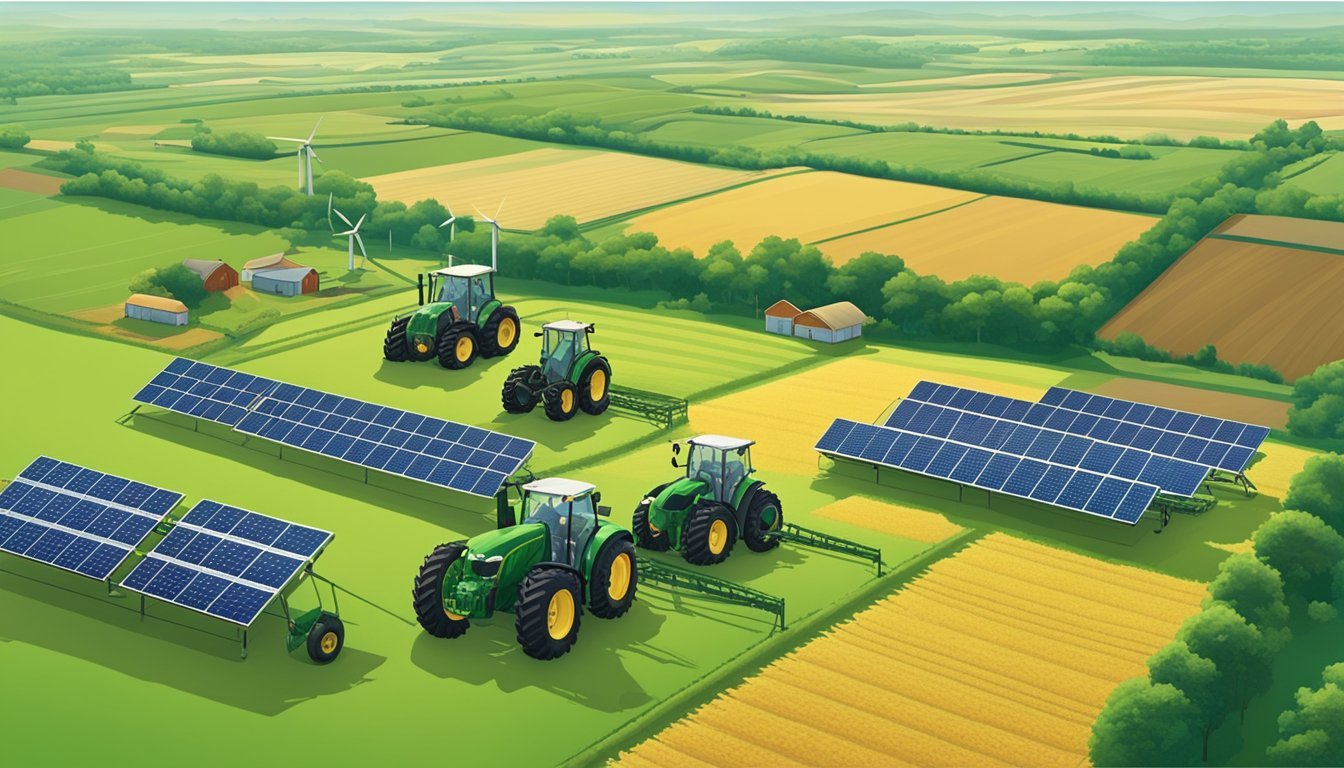Farming Communities in Delaware
A Closer Look at Local Agricultural Practices
Nestled in the heart of the Mid-Atlantic region, Delaware's farming communities offer a unique blend of agricultural heritage and modern sustainability practices. These communities are known for their rich farmlands that produce a variety of crops, including corn, soybeans, and poultry, making agriculture a significant contributor to the state's economy. Recent listings reveal a dynamic market, with numerous farms and ranches available for those looking to invest in or relocate to Delaware's agricultural landscapes.
In Sussex County, for example, nearly 1,000 acres of farmland are currently up for sale. This area, known for its fertile soil and favorable climate, attracts both aspiring and seasoned farmers. The median price for land in Delaware stands at around $489,000, reflecting the value and potential of these agricultural properties.
Agricultural real estate in Delaware also includes opportunities beyond traditional farming. Many properties offer versatile use, supporting activities such as hunting, ranching, and even eco-tourism. Contacting local agents can provide customized insights and assistance for those interested in becoming part of these thriving farming communities.
Historical Overview of Farming in Delaware
Farming in Delaware has significantly shaped the state's economic, social, and cultural landscape over the centuries. Key regions like New Castle County have been central to this development, and evolving farming practices have influenced the growth of communities throughout the state.
Development of Agriculture in New Castle County
New Castle County has played a crucial role in Delaware's agricultural history. Initially, farming in this region focused on subsistence crops such as grains and vegetables grown by early settlers. Over time, agriculture in New Castle County shifted towards more commercial farming operations.
In the 18th century, the county saw increased production of grain due to its fertile soil and favorable climate. This period also marked the introduction of peach orchards, which contributed greatly to local agriculture. By the late 19th century, poultry farming emerged as a significant industry, driven by technological advancements and an expanding market.
Evolution of Farming Practices and Communities
Throughout Delaware's history, farming practices have evolved to meet changing economic demands and technological advancements. Initially dominated by manual labor and animal power, agricultural activities saw substantial improvements with the adoption of machinery in the 19th and 20th centuries.
Crop diversity also expanded, with corn, soybeans, and watermelons becoming staple products. As farming techniques modernized, farming communities became more tight-knit, with multi-generational family farms being the norm. These communities adapted to include more collaborative forms of agriculture, such as cooperative extensions and shared resources, fostering a strong, supportive network among Delaware's farmers.
This evolution illustrates the resilience and adaptability of Delaware's farming communities over time.
Delaware's Farming Landscape
Delaware boasts a diverse and vibrant farming community. With a mixture of traditional farmland and innovative agricultural projects, the state's farming landscape also focuses on the preservation of its natural resources and sustaining agricultural ecosystems.
Description of Local Farms and Farmland
Delaware's farming community includes traditional farms and modern urban agricultural projects. One such initiative is the Southbridge Community Garden, which actively involves the community in local food production.
In New Castle County, only 4 percent of the land remains farmland, emphasizing the urgency of preserving these spaces. Additionally, projects like Second Chances Farm in Wilmington showcase innovative approaches to urban farming, using vertical farming techniques to maximize limited urban space effectively.
Farmland Preservation and Land Preservation
The state emphasizes the importance of preserving agricultural lands. Initiatives such as the Delaware Agricultural Lands Preservation Foundation focus on protecting and sustaining farmland for future generations.
Programs offer financial incentives to landowners for conserving their land rather than converting it to non-agricultural uses. This approach ensures that Delaware’s rich agricultural heritage, particularly in counties like Kent and Sussex, remains intact, contributing to food security and environmental quality.
Agricultural Production and Ecosystems
Delaware farmers are engaged in producing a variety of crops and livestock, contributing significantly to the local economy. The state’s key agricultural products include corn, soybeans, poultry, and dairy.
The Delaware Urban Farm and Food Coalition supports initiatives focused on soil health, water conservation, and pest management. These practices help maintain the ecological balance and soil fertility, ensuring that agricultural activities do not harm the environment. Technical and financial assistance from agencies like the Natural Resource Conservation Service (NRCS) helps farmers implement sustainable practices, making Delaware’s farming landscape both productive and eco-friendly.
Cornucopia of Delaware Crops and Livestock
Delaware's agriculture thrives with diverse crop production and well-developed livestock management. This section examines major crops and their seasonal cycles, along with practices in livestock health and maintenance.
Major Crops and Harvest Calendar
Corn leads Delaware's crop production, benefiting from the state's fertile soil and moderate climate. Corn is typically planted in late April to early May, and harvested from late September to early October.
Soybeans are another staple, often double-cropped with wheat, allowing farmers to maximize land use. Soybeans are seeded in May and harvested from mid-September to October.
Watermelons dominate the fruit sector and are planted in May, with harvesting beginning in July. Delaware's sandy soils provide an ideal growing environment, boosting yield and quality.
A variety of vegetables, including sweet potatoes and tomatoes, also contributes to the state's agricultural diversity. The Delaware Department of Agriculture supports these practices through research and extension services.
Livestock Management and Health
Delaware's livestock sector is crucial, with broilers being the most valuable agricultural product. The state's poultry farms contribute significantly to both state and national economies.
Cattle and hogs are also integral to Delaware's farming landscape, with specialized feed programs optimizing growth and health. Livestock health is managed through rigorous vaccinations and disease prevention programs, guided by the Delaware Department of Agriculture.
Veterinary services play a key role in monitoring livestock diseases, ensuring food safety, and maintaining high production standards. The state promotes sustainable practices to balance productivity with environmental stewardship.
Attention to livestock welfare, through proper housing, nutrition, and regular health checks, ensures the well-being of animals and the success of Delaware's farming communities.
Economic Role and Business Aspects of Farming
Farming communities play a pivotal role in Delaware's economy. This section delves into the economic impact of agriculture, investment opportunities available, and the essentials of managing agricultural businesses.
Impact of Agriculture on Delaware's Economy
Agriculture significantly contributes to Delaware's economy, generating over a billion dollars in farm product sales as of 2007. Covering more than 40% of the state's land area, farming influences both local employment and land use. Additionally, agriculture-related industries maintain resilience, even during economic disruptions such as the COVID-19 pandemic, underscoring their importance in providing jobs and economic stability.
Investment and Funding Opportunities in Agriculture
Delaware offers various funding avenues for aspiring farmers. For instance, a 30-year no-interest loan is available, covering up to 70% of the land’s appraised value, aimed at young farmers aged 18 to 40. Programs like these emphasize land preservation while facilitating access to cropland. Public and private partnerships also enhance investment in agriculture, fostering innovation and supporting agtech ventures through initiatives like the Delaware Prosperity Partnership.
Agricultural Business Management
Effective management is crucial for the success of agricultural businesses. Key practices include strategic planning, financial management, and employing modern farming technologies. Farmers must keep abreast of market trends and compliance regulations to maintain profitability. Collaborating with local entrepreneurs and researchers, as seen in ag tours organized by the Delaware Prosperity Partnership, helps farmers solve problems and innovate, driving both business growth and sustainability.
Educational Resources and Programs
Farming communities in Delaware benefit from a range of educational initiatives and outreach programs aimed at enhancing agricultural skills, sustainability, and community engagement.
Agricultural Education in the Community
Delaware farming communities have access to extensive agricultural education programs. The University of Delaware’s College of Agriculture and Natural Resources serves as a cornerstone. Through its Cooperative Extension, the university offers resources and training in areas such as soil health, crop production, and sustainable farming practices.
Local schools also integrate agricultural education into their curriculums. Programs like Farm to School connect students with local farms, educating them about where their food comes from while supporting local producers. This initiative engaged 86% of Delaware school food authorities in serving local foods, highlighting the community's commitment to agricultural awareness.
Outreach Programs and Workshops
Outreach programs play a vital role in empowering new and experienced farmers. The Delaware Beginning Farmer Program stands out by providing hands-on training, workshops, field trips, and farm tours. This program focuses on small-scale vegetable and fruit production, ensuring that farmers gain practical experience.
Workshops organized by the Cooperative Extension cover a wide array of topics, from pest management to innovative farming technologies. By offering these workshops, the Cooperative Extension helps farmers stay updated with the latest advancements in the field. Educational events also encourage community bonding and knowledge sharing among farmers.
Delaware Department of Agriculture's Role
The Delaware Department of Agriculture actively supports educational initiatives within farming communities. They offer speakers and experts who discuss various agricultural and food-related issues, catering to diverse groups and organizations. To facilitate this, the department has a comprehensive Subject Matter list available for community groups to choose from.
Additionally, the Department of Agriculture coordinates the Farm to School program, which is crucial for integrating local produce into school meals. This not only helps local farmers but also educates students about the importance of consuming locally-sourced food. Contacting Stacey Hofmann from the Department can provide more information and resources on these programs.
By leveraging these resources and programs, Delaware's farming communities can continue to thrive, innovate, and sustain their agricultural heritage.
Innovations in Agricultural Techniques
Agricultural techniques in Delaware are advancing rapidly with a focus on sustainability, biodiversity, and cutting-edge technologies. These innovations aim to improve efficiency, reduce costs, and promote environmental stewardship.
Sustainable Practices and Soil Health
Delaware farmers are increasingly adopting sustainable practices to enhance soil health. Techniques such as cover cropping, no-till farming, and crop rotation are gaining popularity. Cover crops protect soil from erosion and enhance nutrient content. No-till farming reduces soil disturbance, preserving soil structure and moisture. Crop rotation helps in managing pests and improving soil fertility. These practices not only boost crop yields but also promote long-term soil health.
Regenerative Agriculture and Biodiversity
Farmers in Delaware, like the Dittmar Family Farms, are turning to regenerative agriculture to restore biodiversity. This approach integrates agroforestry, perennial cropping, and holistic grazing management. Agroforestry combines trees with crops or livestock, enhancing biodiversity and ecosystem services. Perennial cropping systems reduce the need for replanting, and holistic grazing improves soil health by mimicking natural grazing patterns. Regenerative agriculture helps in carbon sequestration, improves water retention, and fosters a diverse, resilient ecosystem.
Technological Advancements and Tools
Precision agriculture is revolutionizing farming in Delaware. Technologies such as GPS-guided machinery, drone surveillance, and data analytics are being utilized. GPS-guided machinery ensures precise planting and harvesting, reducing waste. Drones provide real-time monitoring of crop health and soil conditions. Data analytics help farmers make informed decisions, optimizing inputs such as water, fertilizers, and pesticides. According to a McKinsey study, widespread adoption of precision agriculture could reduce farming costs significantly by 2030. For example, Ellis Farms in Millsboro has expanded its operations significantly with fewer workers by leveraging these technologies. These advancements not only increase efficiency but also help in meeting environmental goals.
Urban Agriculture and Community Gardening
Urban agriculture and community gardening in Delaware are essential endeavors that enhance access to healthy foods and strengthen local communities. These initiatives, supported by various organizations, contribute to environmental sustainability and social cohesion.
Emergence of Urban Farms
Urban farms have become vital in Delaware's agricultural landscape. Groups like the Delaware Urban Farm and Food Coalition have spearheaded numerous projects, transforming vacant lots into productive urban farms.
These spaces provide fresh produce for local consumption and offer educational opportunities about sustainable farming practices. Delaware Center for Horticulture and other entities actively support these efforts, ensuring technical and financial assistance is available to urban farmers. Consequently, urban farms are improving food security and fostering community resilience.
Importance of Green Spaces and Gardens
Community gardens and green spaces play a crucial role in urban environments in Delaware. Gardens like the Southbridge Community Garden create not only recreational areas but also promote environmental conservation.
These spaces serve as havens for community bonding, encouraging residents to participate in gardening activities. They provide educational programs conducted by universities and local organizations. Such initiatives teach essential skills in horticulture and urban farming, contributing to the overall well-being of the community.
Community gardens enhance the urban landscape, making cities more livable and fostering a sense of pride among residents. Through ongoing support from local coalitions and government agencies, these gardens continue to flourish as integral components of Delaware's green infrastructure.
Local Food Systems and Direct-to-Consumer Sales
Local food systems in Delaware emphasize the importance of healthy food access and fostering strong relationships between consumers and local farms. A robust network of markets and direct sales channels supports this dynamic landscape.
Healthy Food Access and Local Markets
In Delaware, local markets provide fresh, healthy food options directly from farms to consumers. These markets include farmers' markets, on-site farm stores, and community-supported agriculture (CSA) programs.
Farmers' markets give residents access to a variety of produce and promote dietary quality. The establishment of on-site farm stores and stands further integrates fresh food into communities.
CSAs allow customers to subscribe to regular deliveries of farm products, strengthening the food system by directly connecting households with local farms. These methods ensure freshness and seasonality, enhancing the nutritional value of available food.
Consumer Relationships and Local Food Movements
Consumer engagement is essential in Delaware's local food movements. The direct interaction at markets fosters trust and transparency between customers and farmers.
Consumers gain insight into farming practices, leading to informed purchasing decisions. These relationships support local economies and encourage sustainable farming.
By participating in local food movements, individuals help small farms thrive. Educational programs and farm tours offered by local farms enhance community awareness.
This direct-to-consumer model builds a resilient food system, characterized by shorter supply chains and reduced environmental impact. Such activities continuously cultivate a shared commitment to local agriculture throughout Delaware.
Environmental Conservation and Pest Management
In farming communities in Delaware, balancing agriculture with environmental conservation is crucial. Effective pest and disease management techniques are essential for sustainable farming practices.
Balance Between Agriculture and Nature
Delaware's approach to environmental conservation relies heavily on maintaining harmony between agricultural activities and natural ecosystems. The Delaware Nature Society emphasizes regenerative farming practices aimed at land conservation and wildlife habitat preservation. Techniques such as cover cropping, which involves planting crops that cover the soil and prevent erosion, are promoted to enhance soil health.
The Delaware Department of Agriculture collaborates with local conservation districts to offer funding for implementing these methods. This partnership supports programs aimed at increasing the acreage of winter cover crops. Additionally, tree planting initiatives funded through grants help improve air quality and reduce soil erosion.
Integrated Pest and Disease Management
Integrated Pest Management (IPM) is a key practice used in Delaware to manage pest populations in a sustainable manner. IPM combines biological, cultural, mechanical, and chemical tactics to minimize the impact of pests and diseases on crop production.
Farmers are educated on crop rotation and the use of natural predators to control pest populations. The NRCS provides financial and technical assistance for implementing these techniques. This approach reduces the reliance on chemical pesticides, which can harm the environment and beneficial insects.
Moreover, the Farm Service Agency offers resources to help farmers develop comprehensive pest management plans. These programs ensure that farming practices do not negatively affect consumer safety and environmental health.
Supporting the Farming Community
Farming communities in Delaware benefit from a variety of support mechanisms. Key areas include financial and technical assistance during pandemics and opportunities for volunteering and community engagement.
Local and Federal Support during Pandemics
Pandemics create significant challenges for farming communities. During such times, both local and federal support become critical. In Delaware, the Farm Service Agency (FSA) provides a catalog of programs designed to help farmers and their operations. These programs offer financial assistance to ensure that farming activities can continue despite disruptions.
The Natural Resource Conservation Service (NRCS) also contributes by providing technical and financial assistance for soil health, water conservation, and pest control. These measures help stabilize farming operations and maintain productivity. Federal funds are crucial, not just for immediate relief, but also for long-term resilience.
Volunteer Opportunities and Community Engagement
Volunteerism plays a significant role in supporting Delaware's farming communities. Local organizations often call on community members to assist with various agricultural activities. These opportunities can range from helping with harvests to participating in educational programs that promote sustainable farming practices.
Community engagement is further enhanced through initiatives such as Community Supported Agriculture (CSA), where residents subscribe to receive regular shares of produce from local farms. This model strengthens the bonds between farmers and consumers, fostering a sense of community and shared responsibility. Volunteering efforts and organized community programs ensure that farming remains a viable and integrated part of Delaware's societal fabric.
Future Directions in Delaware Farming
Delaware's farming communities are exploring innovative methods and adaptation strategies to sustain agriculture amidst rising challenges. These efforts include advanced technology adoption and soil conservation tactics to enhance productivity and ensure environmental sustainability.
Innovation and Adaptation in Agriculture
Farmers in Delaware are increasingly embracing technological advances. Precision agriculture tools, such as GPS and drones, are being used to monitor crop health and optimize input use. This results in improved yield efficiency and reduced environmental impact.
In addition to technology, the state is promoting regenerative agricultural practices. These practices aim to restore soil health, enhance biodiversity, and combat climate change. Local initiatives, such as no-till farming and cover cropping, are gaining momentum among Delaware's farmers.
Potential Changes and Strategies
State programs are playing a crucial role in shaping the future of Delaware farming. No-interest loans and easement programs are being provided to young farmers to acquire and preserve cropland. This ensures long-term agricultural sustainability and preserves the rural landscape.
There is also a growing focus on diversification. Farmers are experimenting with alternative crops and livestock to adapt to market demands and climate conditions. This approach not only secures farmers’ income but also contributes to the resilience of Delaware’s agricultural sector.

